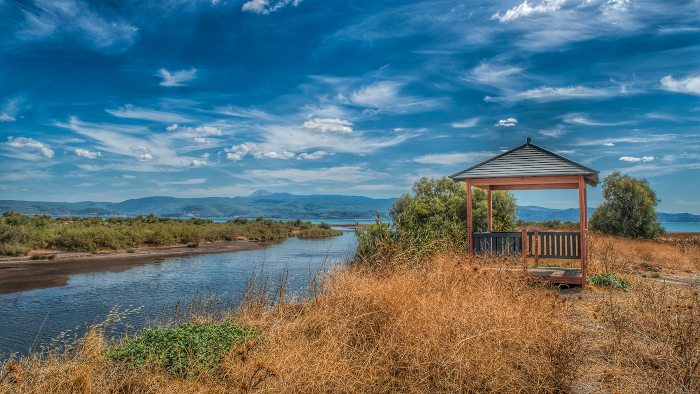The holidays and festivals of Lesvos are related to the "cycle of time". This term defines the events related to the pivotal social and religious events of a calendar year, such as Christmas, New Year and Lights, Halloween, Easter, Calyx, Fifteenth of August and Nine Days of the Virgin Mary, or holidays patron-saints, with supra-local or local recognition. Most festivals are held in honor of the Saints of the Orthodox church throughout the year, but especially in the summer season.
The tradition of the festivals is mainly linked to the rural area, centered on both the churches of the settlements and the outdoor chapels. In the past, the organization of the festivals was undertaken by the communities, the professional guilds, as well as the agricultural and livestock associations. Today, many festivals are (also) maintained with the contribution of cultural associations or the lesbian expatriate, while several have now been forgotten.
Some festivals had a more "closed" local character, while others took on a "hyperlocal" Pallasbian dimension, attracting large crowds of visitors/pilgrims, even from Christian communities of Asia Minor (before 1922). Characteristic examples are the festival of Panagia in Agiaso, as well as the festival of Taxiarchis in Mandamados, where crowds of pilgrims from the opposite coast of Asia Minor, mainly Smyrna and Ayvali, flocked until 1922. These festivals lasted for many days and played a leading role in the social, cultural and economic life of the place.
The big, but (even) smaller fairs played an important role in the lesbian commercial and craft networks, since they were an opportunity for the exhibition and sale of various agricultural and craft products, or for the presentation and buying and selling of animals. Today this dimension has disappeared, but they continue to be places for the sale of cheap household and entertainment products, as well as children's toys of pan-Hellenic and lesbian production.
Festive socializing at the festival grounds is rounded off with fun and dancing in cafes and village squares, with plenty of drink, food and music played by lesbian bands. In the past, the repertoire of these groups included exclusively specific purposes and songs mainly of Asia Minor origin, such as zeibekika, karsilamades, sirtou and balls. Today it follows the pan-Hellenic musical standards, but is still enriched with some "classical" "Asia Minor" songs, which have been a perennial success.
It should be noted, that some customs that appeared fragmentarily (only) in some central festivals, today tend to take on a structural supra-local dimension that characterizes the whole of lesbian festivals. One of them is the symbolic procession and ritual slaughter of a flower-adorned bull accompanied by music, as well as the accompanying preparation of "kiskek", which is consumed collectively by the celebrants and the residents of the community.
A second sequence of customs, gradually gaining Pallasbian diffusion after the 1950s, are those associated with "horse culture". Today, the horse occupies an important place in lesbian festivals. Riders adorn their horses with particular elegance while competing in showmanship, figures and dancing. In many festivals, horse races are held with Pallasbian participation.
The major Pallasbian festivals with a supra-local character that are still a central point of reference in the social and religious life of the island are:
- the festival of Panagia on the fifteenth of August in Agiaso
- the festival of Taxiarchis on Palm Sunday in Mandamados
- the festival of Agios Charalambos or "Tauros", in Agia Paraskevi (but also in Mandamados and Napi)
- the festival of Agios Ignatius at the Leimonos Monastery in the region of Kalloni.
The rest of the religious and secular events of the "cycle of time" are equally distributed across time in urban and rural areas. Until the 1970s, their organization was spontaneous: groups of children would gather to "sing carols" in homes, or groups of revelers would enjoy themselves - often in disguise - during the Halloween season. Their performance was closely linked to the local, community context, since the exchanges of wishes or teasing involved persons from the immediate social environment.
Today, the customs and practices associated with the specific events are sometimes effortlessly revived, but more often they are held under the guidance and auspices of modern municipal authorities in collaboration with local cultural associations, in which case they also take on a supra-local dimension, with the invitation of musical groups or entertainment professionals, coming from all over Lesbos and the rest of Greece.
At the same time, some "new" annual holidays with a variety of cultural events have been established, such as the Ouzo Festival and the Lesbian Summer in Mytilini, the Sardine Festival in Skala Kalloni, the "Vatousian August" in Vatoussa, the "Beniaminia" in Plomari and many others.
Editor: Fotini Anastasopoulou
